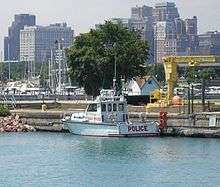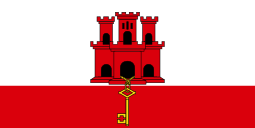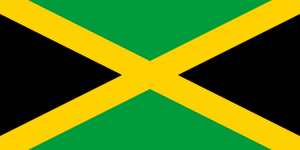Water police













Water police, also called harbour patrols, port police, marine/maritime police, nautical patrols, bay constables or river police, are police officers, usually a department of a larger police organisation, who patrol in water craft. Their patrol areas may be coastal sea waters, rivers, estuaries, harbours, lakes, canals or a combination of these.
Duties and functions
Water police are usually responsible for ensuring the safety of water users, enforcing laws relating to water traffic, preventing crime on vessels, banks and shores, providing search and rescue services (either as the main provider or as an initial response unit before more specialized units arrive), and allowing the police to reach locations not easily accessible from land. They may also be responsible for coastal security, conservation law enforcement, immigration and smuggling patrols, and diving search operations (although many police organizations have separate units to handle this). Their operations may coordinate with other agencies with similar assets such as in the United States the various Federal, State or Local authorities may work together to promote or achieve similar enforcement or rescue outcomes.
Equipment ranges from personal water craft and inflatable boats to large seagoing craft, but most police vessels are small to medium, fast motor launches. In some areas these vessels incorporate a firefighting capability through a fixed deck nozzle. The operators of these vessels are generally trained in many rescue disciplines including, first aid, vessel dewatering, and firefighting. They may also be rescue and scuba divers who are specially trained and also boat operators who may engage in towing operations.
List of water police units
-
 Australia
Australia
- Australian Federal Police Water Police
- New South Wales Police Marine Area Command
- Northern Territory Police Marine and Fisheries Enforcement Unit
- Queensland Police Water Police
- South Australia Police Water Operations Unit
- Tasmania Police Marine and Rescue Services
- Victoria Police Water Police Squad
- Western Australia Police Water Police Branch
-
 Bahamas
Bahamas
- Royal Bahamas Police Force Harbour Patrol
.svg.png) Belgium
Belgium
- Belgian Federal Police Water Police Branch (DAC)
 Bermuda
Bermuda
- Bermuda Police Marine Unit
-
 Canada
Canada
- Barrie Police Service Marine Unit
- Brockville Police Service Marine Patrol
- Durham Regional Police Service Marine Unit
- Halifax Regional Police Lake Patrol
- Hamilton Police Service
- Halton Regional Police Marine Unit
- London Police Service Marine Patrol Unit
- Montreal City Police Service Nautical Patrol
- Niagara Regional Police Service Marine Unit
- Ontario Provincial Police - regional Marine Units and Underwater Search and Recovery Unit
- Ottawa Police Service Marine/Underwater Unit
- Peel Regional Police Marine Unit
- Royal Canadian Mounted Police West Coast Marine Detachment
- Saskatoon Police Service River Patrol Detail
- Toronto Police Service Marine Unit
- Vancouver Police Department Marine Squad
- Winnipeg Police Service River Patrol and Underwater Search and Recovery Unit
- York Regional Police Service Marine Unit
- Cayman Islands
- Royal Cayman Islands Police Marine Section
-
 Finland
Finland
- Helsinki Police Department Boat Unit
-
 France
France
-
 Germany
Germany
- Federal Police units embedded within the Coast Guard
- Water Protection Police units of the following State Police:
- Baden-Württemberg Police
- Bavarian State Police
- Berlin Police
- Brandenburg Police
- Bremen Police
- Hamburg Police
- Hesse State Police
- Lower Saxony Police
- Mecklenburg-Vorpommern Police
- North Rhine-Westphalia Police
- Rhineland-Palatinate Police
- Saarland Police
- Saxony Police
- Saxony-Anhalt Police
- Schleswig-Holstein Police
 Ghana
Ghana
-
 Gibraltar
Gibraltar
- Gibraltar Services Police Marine Unit - a civil police force which guards and enforces law on UK Ministry of Defence installations in Gibraltar.
- Royal Gibraltar Police Marine Section
-
 Hong Kong
Hong Kong
- Hong Kong Police Force Marine Region - The Marine Police patrol 1,651 km2 (637 sq mi) of waters within the territory of Hong Kong, including 263 islands. The Marine Region with about 3,000 officers, and a fleet of 143 in total, made up of 71 launches and 72 craft is the largest of any civil police force.[1][2][3]
-
 Indonesia
Indonesia
- Indonesian National Police - Polisi Perairan (POLAIR)[4]
-
 Ireland
Ireland
-
 Israel
Israel
- Israeli Police Marine Police
-
 Italy
Italy
- Corps of the Port Captaincies – Coast Guard Maritime police
- Carabinieri Marine Police Section
- Guardia di Finanza Marine Police Section
- Polizia di Stato Marine Division
-
 Jamaica
Jamaica
- Jamaica Constabulary Force Marine Division
- Marshall Islands
- Kwajalein Police Department Marine Police Section
-
 Monaco
Monaco
- Monaco Police Force Marine Division
-
 Netherlands
Netherlands
- Korps landelijke politiediensten (KLPD; National Police Services Agency) Water Police
-
 Malaysia
Malaysia
-
 New Zealand
New Zealand
- New Zealand Police Maritime Policing Unit
-
 Portugal
Portugal
- Portuguese Navy Polícia Marítima (Maritime Police)
- Republican National Guard (Portugal) Unidade de Controlo Costeiro (Coast Control Unit)
-
 Singapore
Singapore
-
 Spain
Spain
- Guardia Civil Guardia Civil del Mar
- Servicio de Vigilancia Aduanera (Customs)
-
 Sri Lanka
Sri Lanka
- Sri Lanka Police Service Marine Division
-
 South Africa
South Africa
- South African Police Service Water Wing
-
 United Kingdom
United Kingdom
- Devon and Cornwall Constabulary Marine Operations Section
- Dyfed-Powys Police Marine Unit
- Dorset Police Marine Section
- Essex Police Marine and Diving Unit
- Hampshire Constabulary Marine Unit
- Kent Police Marine Unit
- Lothian and Borders Police Marine Section
- Metropolitan Police Marine Policing Unit (formerly Thames Division)
- Ministry of Defence Police Marine Unit
- Norfolk Constabulary Broads policing unit by boat with support from 'Broads beat' officers on land
- Northumbria Police Marine Unit
- North West Police Underwater Search & Marine Unit
- Strathclyde Police Marine Policing Unit
-
 United States
United States
- Alabama Department of Conservation and Natural Resources Marine Police Division
- Anacortes Police Department Marine Patrol, Washington
- Austin Park Police, Texas
- Town of Babylon Public Safety Department Marine Patrols/Bay Constables, New York
- Baltimore Police Department Marine Unit, Maryland
- Baltimore County Police Department Marine Unit, Maryland
- Barnstable Police Department Marine Division, Massachusetts
- Boston Police Department Harbor Unit, Massachusetts
- Boynton Beach Police Department Marine Patrol, Florida
- Butler County Sheriff's Office Marine Patrol, Ohio
- Catawba County Sheriff's Office Lake Patrol Unit,
- Charleston Police Department Harbor Patrol, South Carolina
- Charlotte-Mecklenburg Police Department Lakes Enforcement Division, North Carolina
- Chatham County Police Department Marine Patrol Unit, Georgia
- Chicago Police Department Marine Unit, Illinois
- Colchester Police Department Marine Unit, Colchester, Vermont
- Dane County Sheriff's Office Marine Patrol Division, Wisconsin
- Daytona Beach Police Department Marine Unit, Florida
- Delaware River and Bay Authority Police Department Marine Unit
- Des Moines Police Department Waterway Operations Unit, Iowa
- Detroit Police Department Harbor Master Unit, Michigan
- Dover Police Department Marine Patrol Section, Delaware
- East Bay Regional Park District Police Department Marine Patrol Unit, California
- El Dorado County Sheriff's Office Boat Patrol, California
- Erie County Sheriff's Office Marine Patrol Unit, New York
- Evans Police Department Marine Rescue and Recovery Unit, New York
- Florida Department of Environmental Protection Bureau of Park Patrol
- Fort Lauderdale Police Department Marine Unit, Florida
- Gaston County Police Department Marine Enforcement Division, North Carolina
- Greenwich Police Department Marine Operations Section, Connecticut
- Hamilton County Sheriff's Office Marine Patrol Unit, Ohio
- Hamilton County Sheriff's Office Marine Division, Tennessee
- Hennepin County, Minnesota Sheriff's Office Water Parol, Hennepin County, Minnesota
- Henrico County Division of Police Marine Patrol, Virginia
- Henry County Sheriff's Office Marine Patrol Division, Ohio
- Hollywood Police Department Marine Unit, Florida
- Huron Police Department Harbor Patrol,
- Huntington Harbormasters Office /Marine Patrol
- Town of Islip Harbor Police, New York
- Kent Police Department Marine Patrol Unit, Washington
- Kentucky Department of Fish and Wildlife Resources Water Patrol
- Key West Police Department Marine Unit, Florida
- King County Sheriff's Office Marine/Dive Unit, Washington
- Kern County Parks and Recreation Lake Patrol, California
- Lake County Sheriff's Office Marine Unit, Florida
- Lake County Sheriff's Office Marine Unit, Illinois
- Lake County Sheriff's Department Marine Unit, Indiana
- Lake County Sheriff's Office Marine Patrol, Ohio
- Levee District Police, Louisiana
- Lorain Port Authority Marine Patrol, Ohio
- Los Angeles Port Police, Port of Los Angeles, California
- Ludington Marine Patrol (jointly operated by city police and fire departments)[5], Michigan
- Macomb County Sheriff's Office Marine Division, Michigan
- Maine Department of Marine Resources Marine Patrol
- Maricopa County Sheriff's Office Lake Patrol Division, Arizona
- Marin County Sheriff's Office Marine Patrol, California
- Maryland Natural Resources Police
- Maryland Transportation Authority Police Department Marine Unit
- Massachusetts Environmental Police
- Massachusetts State Police Marine Unit
- Metropolitan District Commission Police Department, Connecticut
- Metropolitan Police Department Harbor Patrol, District of Columbia
- Miami-Dade Police Department Marine Patrol, Florida
- Michigan Department of Natural Resources Law Enforcement Division, Marine Patrol
- Milwaukee Police Department Harbor Patrol Unit, Wisconsin
- Missouri State Water Patrol Department of Public Safety, Jefferson City, Missouri
- Muskegon County Sheriff's Office Marine Division, Michigan
- Nassau County Police Department Marine Division, New York
- New Hampshire Marine Patrol Department of Safety
- New Jersey State Police Marine Services Unit
- New York City Police Department Harbor Unit, New York
- New York City Police Department Auxiliary Police Harbor Unit, New York
- New York State Police Marine Detail
- North Miami Police Department Marine Patrol, Florida
- North Miami Beach Police Department Marine Patrol, Florida
- Oakland County Sheriff's Office Marine Unit, Michigan
- Ohio Department of Natural Resources Division of Watercraft
- Oklahoma City Police Department Lake Patrol Section, Oklahoma
- Oklahoma Highway Patrol Lake Patrol Section (Troop W)
- Olympia Police Department Harbor Patrol, Washington
- Orlando Police Department Marine Patrol Unit, Florida
- Ottawa County Sheriff's Office Marine Division, Michigan
- Perrysburg Township Police Department Marine Patrol, Ohio
- Philadelphia Police Department Marine Unit, Pennsylvania
- Pittsburgh Police River Rescue Unit, Pennsylvania (operated jointly with the city's Bureau of Emergency Medical Services and featured in the movie Striking Distance)
- Placer County Sheriff's Office Marine Unit, California
- Polk County Sheriff's Office Marine Unit, Florida
- Port Authority of New York and New Jersey Police Department, Port Authority of New York and New Jersey
- Port of New Orleans Harbor Police Department Patrol Boat Division, Louisiana
- Poulsbo Police Department Marine Patrol, Washington
- Providence Police Department Harbor Patrol, Rhode Island
- Putnam County Sheriff's Office Marine Unit, New York
- Rocky River Police Department Marine Patrol, Ohio
- Ross County Sheriff's Office Marine Patrol Unit, Ohio
- Sacramento County Sheriff's Department Marine Enforcement Detail, California
- Sacramento Police Department Marine Division, California
- San Diego Harbor Police Marine Patrol, California
- Sandusky Police Department Marine Patrol, Ohio
- Santa Barbara County Sheriff's Office Marine Unit, California
- Seattle Police Department Harbor Patrol, Washington
- Suffolk County Police Department Marine Bureau, New York
- Suffolk County Sheriff's Office Marine Unit, New York
- Summit County Sheriff's Office Marine Patrol, Ohio
- Tampa Police Department Marine Unit, Florida
- Toledo Police Department Harbor Patrol, Ohio
- United States Coast Guard Search and Rescue (SAR) and Law Enforcement Detachments (LEDETS)
- United States Customs and Border Protection: Office of Air and Marine
- United States Park Police Marine Unit
- Vermilion Police Department Marine Patrol Unit, Ohio
- Virginia Marine Resources Commission Law Enforcement Division
- Vermont State Police Marine Division Vermont
- Wayne County Sheriff's Office Marine Division, Michigan
- Webster Police Department Marine Patrol, Massachusetts
- Wisconsin Department of Natural Resources Lakes Patrol Unit
-
 Vietnam
Vietnam
- Ministry of Public Security: Vietnam People's Public Security
- Department of Traffic Police:[6] Vietnam Traffic Police
- Bureau of Water Traffic Patrol and Control: Vietnam River Police
- Bureau of Water Criminal Investigation: Vietnam River Police
- River Squadron I
- River Squadron II
- River Squadron III
- Department of Traffic Police:[6] Vietnam Traffic Police
- Ministry of Public Security: Vietnam People's Public Security
See also
- Coast guard
- Police watercraft
- Water Rats, Australian television series about water police
References
External links
| Wikimedia Commons has media related to Police boats. |
